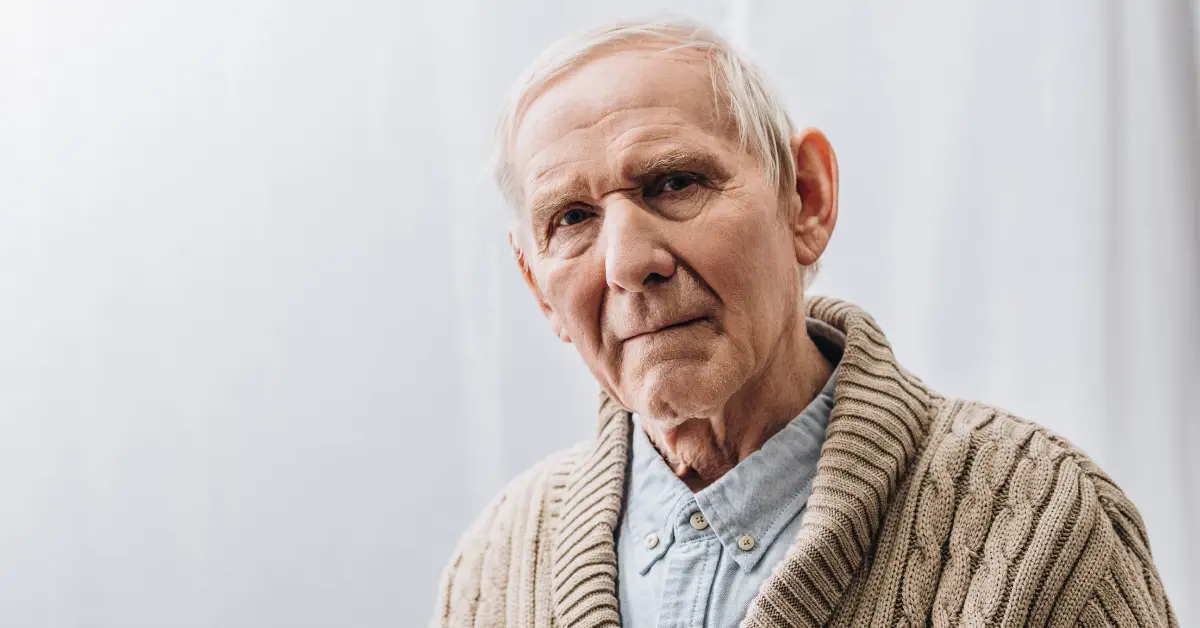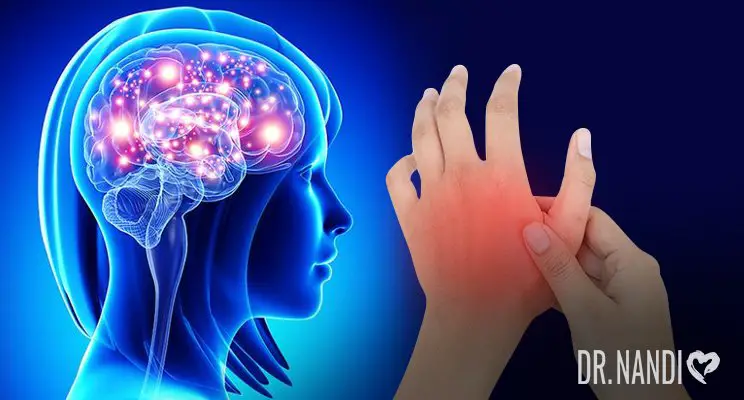Dementia is not a single disease; rather, it is an umbrella term that encompasses a wide range of specific medical conditions, including Alzheimer’s disease. (10)
If dementia hits your family it can be devastating. Therefore, many of us listen to every brain expert we can in order to learn how to reverse dementia, or communicate effectively with someone who has it. We can slow down dementia and improve the condition (if someone we know already has it).
What’s The Difference Between Dementia And Alzheimer’s?
Dementia is the term applied to a group of symptoms that negatively impact memory, but Alzheimer’s is a specific progressive disease of the brain that slowly causes impairment in memory and cognitive function. The exact cause is unknown, and no cure is available. (9)
Alzheimer’s disease is a common cause of dementia, but there are numerous other possible causes. (9)
For example, Dementia with Lewy bodies is a progressive disease caused by protein deposits in the body’s nerves that interfere with electrical signals, whereas Parkinson’s Disease Dementia is a progressive disease caused by deposits of protein in the nerves that disrupt electrical signals. (9)
Other types of dementia include Vascular Dementia, Mixed Dementia, and Frontotemporal Dementia. (9)
Frontotemporal Dementia
Frontotemporal dementia (FTD), the most common cause of dementia, is a group of disorders caused by the loss of nerve cells in the frontal and temporal lobes of the brain. This causes the lobes to contract. FTD can have an impact on one’s behavior, personality, language, and movement. (4)
FTD is among the most common dementia to strike at an earlier age and it is most common between the ages of 40 and 65, but it can occur at any age. FTD accounts for approximately 10% to 20% of all dementia cases. (2)
Certain subtypes of FTD have been linked to mutations in several genes, according to researchers. Pick bodies are tiny structures found in the brain cells of some people with FTD. Pick bodies contain an unusually large or different type of protein. (4)
Health Studies And Research
Recent studies show that early telltale signs of dementia can be spotted on the face. This is because nerve cell loss is most noticeable in areas that control, among other things, behavior, judgment, empathy, and foresight. (3)
A study conducted in Seoul, South Korea, in 2017 was conducted to identify the performance profiles of six facial emotions (fear, anger, disgust, sadness, surprise, and happiness). (3)
Neutral faces were measured among Korean healthy controls, and those with mild cognitive impairment were investigated. A total of 110 older adult participants were recruited from two different medical centers in metropolitan areas of South Korea. (3)

The individuals underwent a FER test that was used to assess the recognition of emotions or absence of emotion (neutral) in 35 facial stimuli. The analysis showed negative emotions were correlated with gray matter volume of anterior temporal regions, whereas positive emotions were related to gray matter volume of frontoparietal regions. (3)
The conclusion was that people’s facial expressions may be affected in the early stages of dementia. At times, the person’s facial expression may be inappropriate for the situation, such as laughing in a serious or sad situation or suddenly crying when there appears to be no trigger. People suffering from dementia may also exhibit anxiety, depression, agitation, bewilderment, or a lack of feelings in what seems to be the ‘wrong’ moment to do so. (3)
Furthermore, researchers have previously noted that patients may sometimes show an inability to decode the facial expressions of others, with the NHS defining FTD as an “uncommon type of dementia that causes problems with behavior and language”. (3)
Spotting Other Signs Of Early Dementia
Diagnosing dementia in the early stages is key for effective treatment, so knowing the warning signs is imperative. (5,8)
We should watch out for early symptoms including:
- Increased confusion.
- Personality or behavior changes.
- Apathy and withdrawal or depression.
- Loss of ability to do everyday tasks.
- Memory problems, particularly remembering recent events.
- Reduced concentration. (1)
Other warning signs can include disorientation about time and places, language problems and forgetting words, trouble understanding numbers, poor judgment in making appropriate decisions, difficulty judging distance or direction when driving, loss of initiative, and tiring easily with activities. (1)
What we do know is knowledge is important and that we can take some steps to prevent it. Open to anyone in any time zone is Dr. Nandi’s Newsletter where you can learn much more about dementia prevention.

How To Prevent Dementia In Aging Years
Increasing age is the biggest known risk factor for dementia, but eating the right foods, staying socially involved, trying new hobbies to stay mentally alert, quitting smoking, performing exercise (to get the blood flowing to the brain), and benefiting from a quality sleep are all important factors for prevention. (8)
Superfoods that our brains love, and which are also known to help prevent the risk of dementia include:
- Vegetables and grains
- Olive oil
- Nuts
- Berries
- Green tea
- Tomatoes, avocados, beetroots.
- Fish
- Coffee
- Dark chocolate. (6,7)
Getting To Know The Brain
In a world of ever-accelerating change with busy schedules and urgent deadlines, time seems to have sped up. It’s hard to find the time to really connect with our friends and family when they are aging. This can, unfortunately, lead to not spotting changes in the way they react to us, or how they presently feel.
To take care of your brain health and that of your friends and family, it is a great idea to sign up for Dr. Nandi’s newsletter to get free weekly updates in your mailbox. Then you can discover more about dementia, and ways to help the human brain regenerate.
Extending our health span to stay vibrant, strong, sharp in mind, and as energetic as we were when we were young is becoming more possible each year with medical breakthroughs and scientific insights.
We have all got to continually question what we’ve been told about dementia and Alzheimer’s – especially during the inevitable aging process.

- https://www.betterhealth.vic.gov.au/health/conditionsandtreatments/dementia-early-signs#early-symptoms-of-dementia
- https://www.mayoclinic.org/diseases-conditions/frontotemporal-dementia/symptoms-causes/syc-20354737
- https://www.frontiersin.org/articles/10.3389/fnagi.2017.00389/full
- https://www.hopkinsmedicine.org/health/conditions-and-diseases/dementia/frontotemporal-dementia
- https://www.thelancet.com/article/S0140-6736(20)30367-6/fulltext
- https://www.webmd.com/alzheimers/ss/slideshow-dementia-foods
- https://www.aarp.org/health/brain-health/info-2015/brain-diet.html
- https://stanfordhealthcare.org/medical-conditions/brain-and-nerves/dementia/prevention.html
- https://www.healthline.com/health/alzheimers-dementia/difference-dementia-alzheimers
- https://www.alz.org/alzheimers-dementia/what-is-dementia












 Subscribe to Ask Dr. Nandi YouTube Channel
Subscribe to Ask Dr. Nandi YouTube Channel









